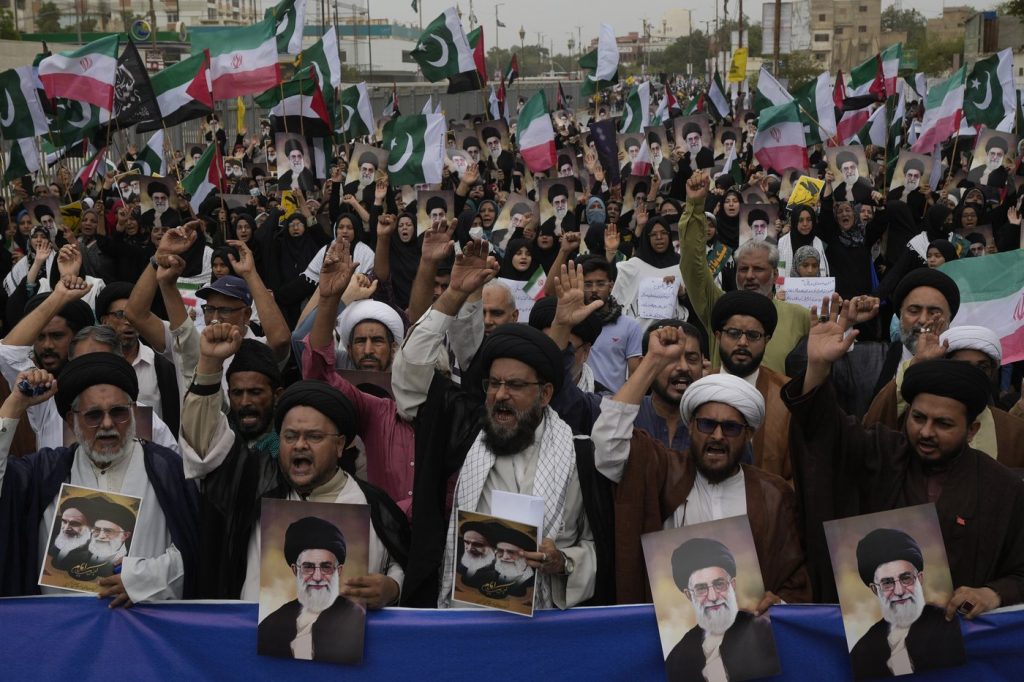ISLAMABAD (AP) — Pakistan publicly condemned U.S. President Donald Trump for bombing Iran, marking a stark shift in its diplomatic stance less than 24 hours after praising him for helping defuse a crisis with India. This contradiction highlights the complex and often volatile nature of geopolitical alliances in South Asia and the Middle East.
Relations between Pakistan and India deteriorated sharply following a massacre of tourists in Indian-controlled Kashmir in April 2025, which escalated into military confrontations between the nuclear-armed nations. The situation became increasingly fraught as the two countries engaged in aggressive posturing and attacks. Ultimately, intense diplomatic efforts, particularly from the U.S., led to a ceasefire, which Pakistan acknowledged and for which it credited Trump with “decisive diplomatic intervention and pivotal leadership.” This acknowledgment was formally communicated through a recommendation for Trump to receive the Nobel Peace Prize, issued via the X platform on Saturday night.
However, within a short span of time, the mood shifted dramatically as Pakistan condemned the airstrikes carried out by the U.S. against Iran. Pakistani officials described the attacks as a “serious violation of international law” and went so far as to state that they contradicted the statutes of the International Atomic Energy Agency (IAEA). Prime Minister Shehbaz Sharif, in a phone call with Iranian President Masoud Pezeshkian, expressed his concerns regarding the bombings, particularly noting that they had targeted facilities that were supposed to be under IAEA safeguards.
Pakistan has traditionally maintained close ties with Iran and publicly supports its actions against Israel, asserting Iran’s right to self-defense. The rapid shift in Pakistan's stance seems to reflect its prioritization of regional alliances and its strategic interests, particularly in relation to Iran and its ongoing tensions with Israel.
Further complicating matters, the recent high-profile meeting at the White House between Trump and Pakistan’s military chief, Asim Munir, raised eyebrows. The two-hour discussion, attended by Secretary of State Marco Rubio and the U.S. Special Representative for Middle Eastern Affairs, Steve Witkoff, reportedly included a detailed exchange of views regarding the ongoing tensions between Iran and Israel. This meeting was key in fostering communication between U.S. and Pakistani military leaders, particularly in light of recent conflicts.
While Pakistan was quick to express gratitude towards Trump for his mediation in the India-Pakistan crisis, India has appeared less appreciative, downplaying the need for any external mediation concerning Kashmir. The Himalayan territory remains a critical point of contention, as both countries claim it in full despite the region being divided between them. Tensions remain high with India accusing Pakistan of supporting militant activities, which Pakistan has consistently denied.
The situation presents a compelling case of the intricate balance of diplomatic relations, military alliances, and regional stability, particularly as both Pakistan and Iran navigate their positions in the face of U.S. foreign policy initiatives. With each statement and action, the dynamics continue to evolve, showcasing the fragile nature of international relations in this segment of the world.










